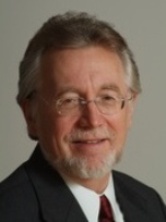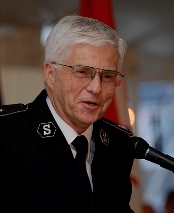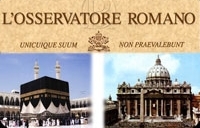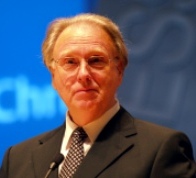Representatives of the Salvation Army and the Seventh-day Adventist church met February 25-27, 2008, at Adventist world headquarters in Silver Spring, Maryland for conversations concerning theology and possible areas of cooperation. The meeting completed a process that began in 2004, when the Adventists hosted Salvationists at the General Conference office. A second round of conversations took place in 2005, at The Salvation Army conference center in Jackson's Point, Ontario, Canada.
Contacts between the Seventh-day Adventist church and the Salvation Army reach back in the 1970s. Over the years, various informal discussions have taken place mostly in England, and in 2002 the administrative committee of the Seventh-day Adventist General Conference and The Salvation Army international headquarters administration authorized a more formal theological dialogue.
The Seventh-day Adventist church was organized in the United States of America in 1863, while the Salvation Army had its beginnings in London, Great Britain in 1865. In 1878 the "Christian Mission" ministry evolved on a quasi-military pattern organization which has functioned successfully within that unusual structure for more than a century. Both Adventists and Salvationists have roots in the theology of John Wesley, founder of the Methodist church.

Representing the Seventh-day Adventist General Conference were Dr. John Graz, director of the General Conference Public Affairs and Religious Liberty department (convener); Dr. William G. Johnsson, Assistant to the President for Interfaith Relations (co-chair); Niels- Erik Andreasen, president of Andrews University; Dr. Bert Beach; Dr. Lisa Beardsley, associate director of the General Conference Education Department; Dr. Denis Fortin, dean of the theological seminary at Andrews University; Dr. Ekkehardt Mueller, associate director of the Biblical Research Institute; and Dr.Angel Rodriguez, director of the Biblical Research Institute. The team of the Salvation Army consisted of Commissioner Dr. William Francis, International Secretary for the Americas (convener); Lars Lydholm, theologian from Denmark (co-chair); Colonel Dr. Brian Tuck from South Africa; Commissioner Linda Bond from Canada; Major Karen Shakespeare from England; and Captain Gordon Sparks from the U.S.A.

The recent meeting focused on ecclesiology, religious liberty, and law and gospel. Papers were presented on a profile of Adventists (William G. Johnsson), the church (Denis Fortin and the draft statement on ecclesiology prepared by The Salvation Army), Religious freedom (John Graz and Lars Lydholm), and law and gospel (Ekkehardt Mueller and Gordon Sparks).
According to William G. Johnsson, the conversations, which took place in an environment of openness, respect and empathy, revealed that the two Christian world communions have many elements in common. Both church organizations believe in righteousness by faith and sanctification through the indwelling work of the Holy Spirit in the believer's life. They are both impelled by a sense of mission, which includes both evangelism and service to humanity and emphasize a holistic gospel.
At the same time, significant differences exist between the two movements: concerning eschatology, the biblical day of rest (Sabbath), the so-called inspired writings of Ellen G. White, baptism and the Lord's Supper. The Salvation Army founders, William Booth and Catherine Booth, believed that many Christians had come to seek salvation through ritual rather than reliance on God. Accordingly they decided not to include the use of sacraments, mainly baptism and Lord Supper, in the Army's form of worship.
The representatives to the conversation concluded that, despite these differences, the shared concerns allow for the possibility of cooperating together, as brothers and sisters in Christ, in selected endeavors as we seek to meet humanity’s crying spiritual and material needs. The two delegations have formulated joint statement of understanding which will be released after approval by both administrative bodies.
With its self-understanding as an international movement, The Salvation Army is an evangelical part of the universal Christian church and a Christian world communion. World-wide there are 15,241 local Salvation Army churches (including corps, outposts, societies, new plants and recovery churches) in 113 countries with close to 2 million Christians (senior soldiers, junior soldiers and adherents).
The Seventh-day Adventist Church is comprised of 15,4 million baptized believers, in 203 countries, representing with children a fellowship of more than 25 million Adventist Christians.


